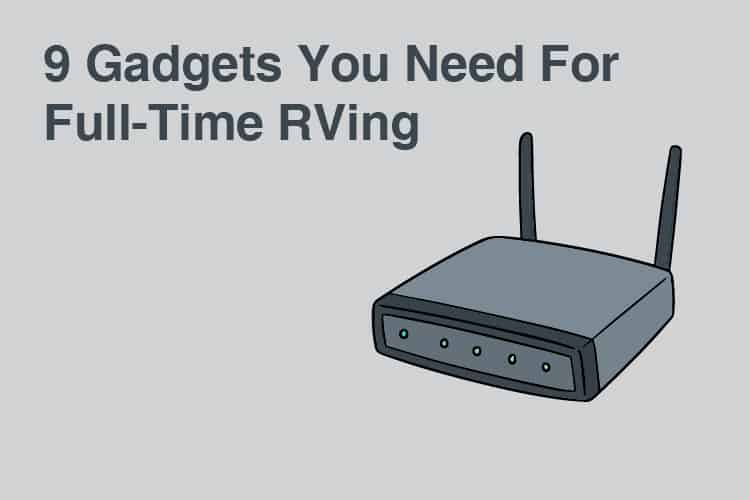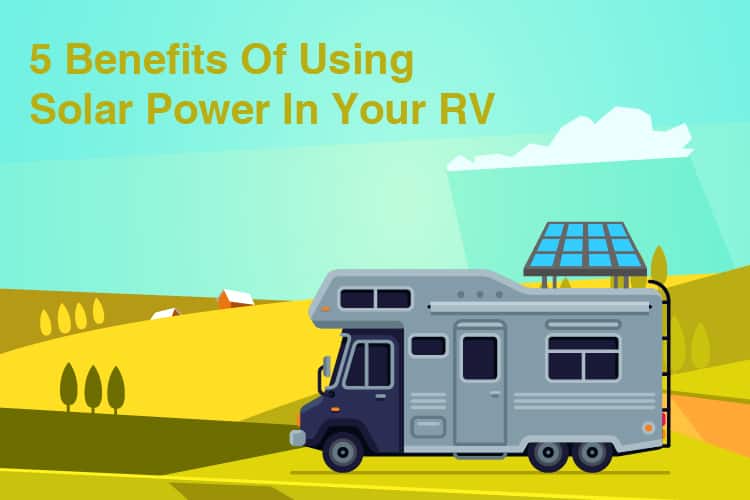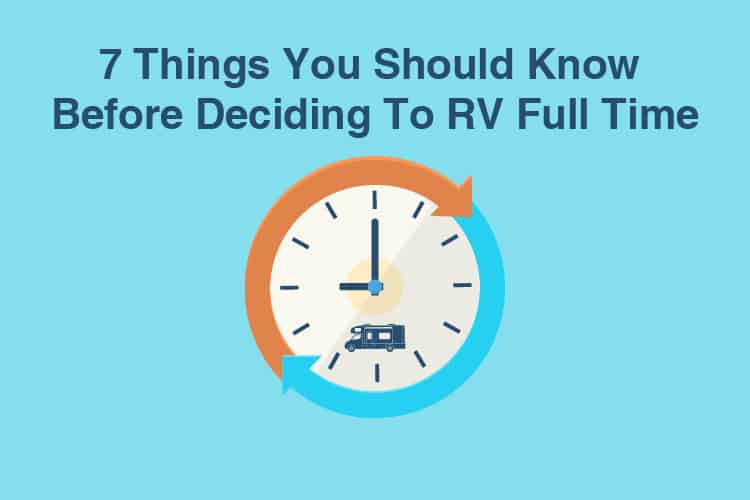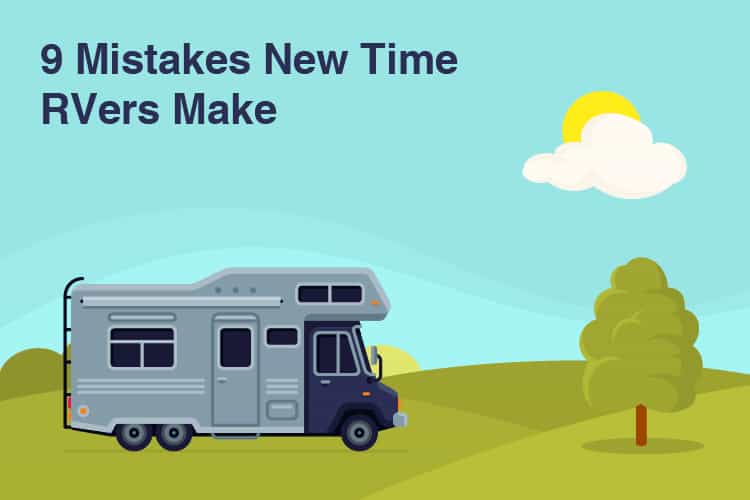Living in an RV full-time is a significant commitment. Not everyone can leave the comforts of home behind and fit their entire lives into a small camper.
Because of the limited space, you have available to you, what you decide to bring with you can either make your life better or make it more complicated.
Whenever possible, you’ll want to bring RV gadgets that have multiple uses. If you have single-use items, make sure they are absolutely necessary.
All of the items listed in this article are vital to RVing full-time.
1. Electrical Management System
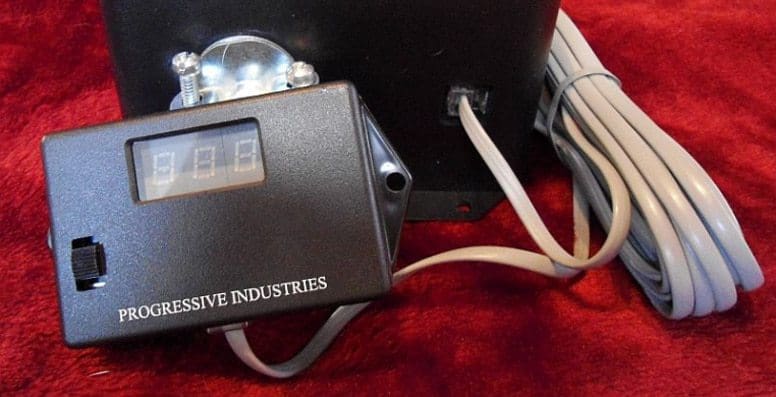
EMS (Electrical Management System) surge protectors were made to protect your electrical system against from high and low voltage that can cause it to short out. It also protects your RV from other types of electrical damage.
Trying to fix a broken RV electrical system can get extremely expensive, so protecting it from damage is a high priority.
Before purchasing an EMS, you’ll want to answer the following questions:
- Do you have a 30 amp or 50 amp setup?
- Does your RV already come with an electrical protection system?
- Would you prefer a portable or hard-wired unit?
2. Wi-Fi HotSpot and Signal Booster
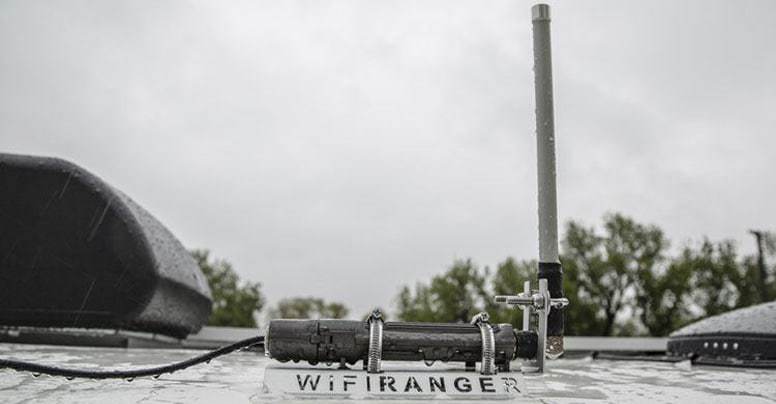
Many people who decide to live in an RV full-time make their income by working on the internet.
In fact, there are at least 48 blogs dedicated to helping people make the transition from living at home to RVing full time.
These digital nomads must get online and work so they can pay the bills. However, when you’re traveling on an open road, there’s no guarantee that you’ll find a place with Wi-Fi.
Mobile hotspots are a great way to ensure you’ll have a stable connection wherever you go.
Most phone companies provide hotspot services, and many even have unlimited plans.
3. RV Specific GPS
You can’t use any old GPS for your RV.
These devices often don’t take RV size into account, and sometimes advise you to take a route where your vehicle physically won’t fit.
A GPS made for RVs is a great way to make sure you reach your intended location without getting into a nasty predicament. These devices have larger screens and come with updated map data.
They can also show you RV specific points of interest, such as a campground locator, hazards and restrictions, RV friendly exits, and trip planning features.
4. Water Filter

Water is one of the basic necessities of full-time RVing.
Depending on where you go, there’s no guarantee that the water you drink is suitable for consumption straight from the source. Lingering sediment and wildlife can taint water taken from natural sources.
You’ll want to consider purchasing and installing two filters.
The first is an exterior filter connected to your water hose that eliminates sediment build up. It also helps remove bad smells and tastes that could enter the RV through your plumbing.
The second is a filter that can be installed under the sink. This one works well to remove any leftover impurities before drinking.
5. Leveling Blocks
Smaller RVs and trailers aren’t equipped with hydraulic jacks.
This means it’s up to you to make sure your vehicle is level. If you’re parked on a hill, or even if it seems like you’re on flat land, you’ll need to level out your RV. Also I have a DIY guide on how to make your own leveling blocks for around 15 bucks.
Not doing so invites a whole host of problems, such as cupboards opening by themselves and items falling out.
Your fridge also has to be level to function, so if you’re stopped at an angle, there’s a good chance your fridge will stop working!
6. Multi-purpose Cooker
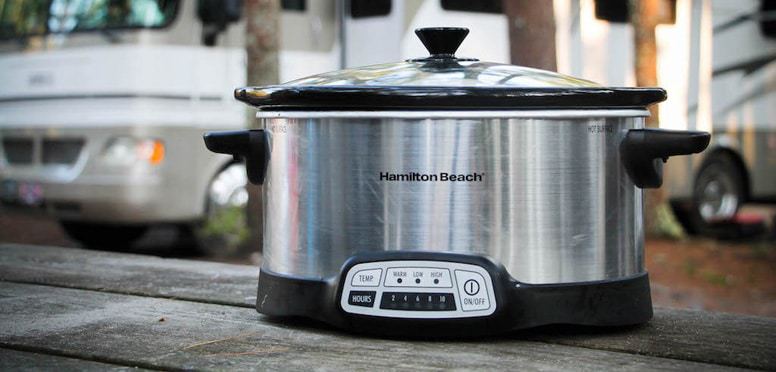
Kitchen appliances can easily take up all of your available space if you let them. Limited space means you have to be extra careful about what you keep in your RV.
A multi-purpose cooker is a must-have addition to any mobile kitchen. It rids you of the need to buy multiple products that all take up storage space.
There are several cookers out there that can do just about any type of cooking you would need to do on the road.
Here are all of the things you can do with a multi-purpose cooker.
- Slow cooking
- Pressure cooking
- Browning
- Steaming
- Baking
7. Roof Vent Cover
Having a roof vent in your RV is a must have.
It makes it so that your whole vehicle doesn’t fog up when you’re cooking, and helps keep the air circulating. However, if the weather is bad outside, it’s difficult to keep the vent open.
With a roof vent cover, you can run your ventilation even when it’s raining outside. Roof vent covers are also a great way to prevent any moisture damage or leaks.
8. Cast Iron Pan
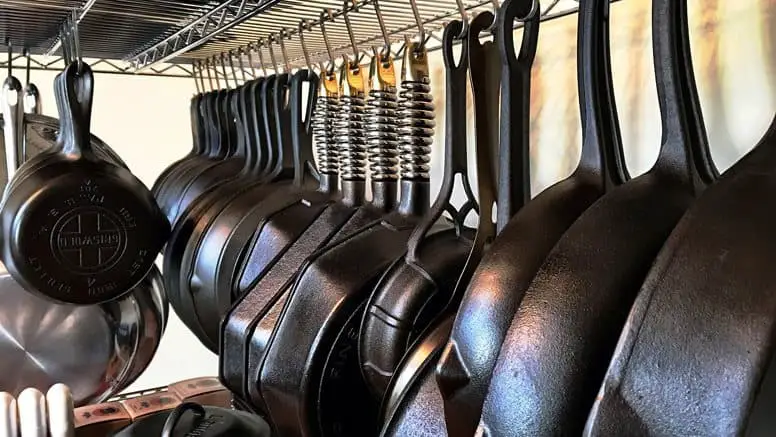
Despite their weight, cast iron pans are incredibly sturdy and versatile.
They also require less oil, which makes it easy to cut down on your cooking supplies. Their thermal conductivity keeps food from burning and makes it easy for you to cook on high heat.
Cast iron cookware’s non-stick property increases the more you use it. So once you buy one, you won’t have to buy any other pans for quite some time.
9. Collapsible Cookware
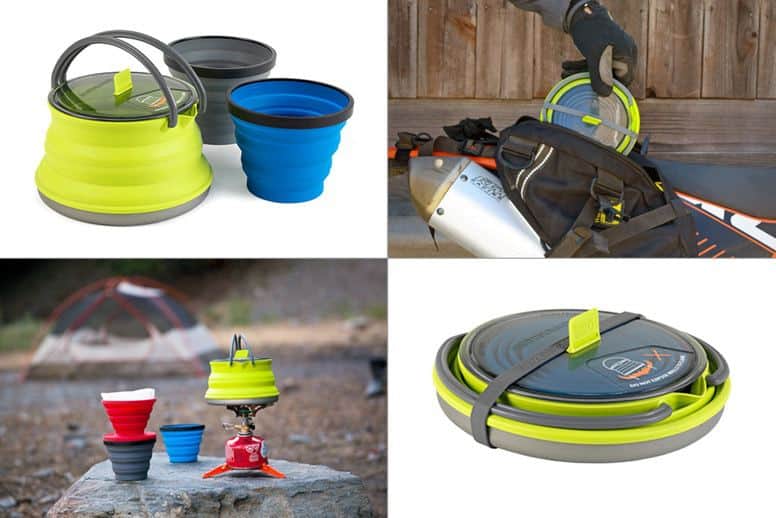
Storage space is at a premium in your RV.
Cookware can be one of the bulkiest items in your vehicle, taking up more space than you have.
Collapsible cookware makes it easy for you to keep all of the dishes you need without taking up all of the available space in your cabinets. Along with plates, bowls, and cups, you can also buy collapsible pots and pans.
Many of these items are also lightweight, which means they aren’t likely to weigh you down, even if you need to carry them yourself.
To Sum It All Up
There are hundreds of gadgets out there that help make full-time RV living possible. You don’t have to own all of them to enjoy your on the road lifestyle.
Make sure you get equipped with these essentials before you start looking at other gadgets, and you’ll have most of your basic needs covered.
Resources:


